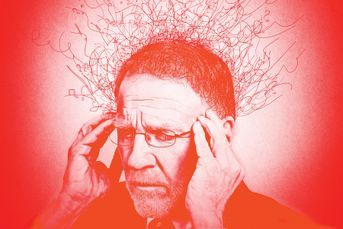Silence those voices in your head
Yes, we all have the internal dialogue on instant replay — even advisers. And because most of it is negative, it hinders our health, wealth, happiness and success.
Do you hear voices? Even when you’re alone, there is someone talking to you — a near constant internal dialogue we have with ourselves. The voices in your head don’t make you crazy, they make you human. But these voices have the power to make us believe some crazy things.
In 2005, the National Science Foundation published an article noting the average person has 12,000 to 60,000 thoughts per day. Of those, 80% are negative and 95% are repetitive. And yes, 80% of the 95% play-loop is negative. Do the math and you realize why so many of us are achieving only a fraction of our potential.
The reality, driven by new research, is that your belief system is what causes you to think, feel and act the way that you do. Simply put, your belief system drives your behavior, and the outcomes you experience.
The health, wealth, happiness and success we experience rest squarely on the quality of our internal dialogue. Do any of these “conversations” sound familiar?
• There’s no way I can get all this done, there’s just not enough time. I have to stay and work.
• If I raise my fees, I will lose clients.
• I can’t charge fees for financial planning, people will never pay them.
• I can’t turn away clients who are referred just because they’re too small.
• He wants everything handed to him; he doesn’t understand how hard I had to work to get here.
• If I don’t do it, it won’t get done right. Why can’t anyone just do things right (the way I do)?
• My partner isn’t contributing enough — I do all the valuable work around here.
• (Insert your negative talk here)
All of this begs the question, where does this chatter come from? Insert your eye roll here if you must, but science says we form these belief systems in childhood.
When I was 9 years old, my mother was diagnosed with a mental illness. The result was psychiatric hospitals, prescription bottles and panic attacks, plus physical and emotional abuse. After her diagnosis, I attended seven schools before graduating. I was teased mercilessly by relatives for being chubby. I was regularly awakened at 2 a.m. by a frantic mother. My mother even said to me: “You should be nicer to me; this is going to happen to you.”
In my first article, I shared that no matter how successful I was I couldn’t enjoy my success, and I couldn’t relax … ever. Turns out a series of limiting beliefs were the culprit:
• I’m fat (because the people I loved and trusted told me so)
• I don’t belong (if I did, I wouldn’t always feel like an outsider)
• I am broken (the person I loved most in this world told me so, so it must be true)
• I’m not good enough (see the list above)
• Therefore, I must be perfect if I want to be loved and accepted.
In response to these unhappy messages, I did what many suffering from such feelings do: I strived to succeed. I thought money would give me meaning and success would make me significant. As taught by conventional wisdom, I believed that if I worked hard I would be successful; and if I were successful, I would be happy.
In some sense it worked. The more I worked, the more successful I became. But it did little for my happiness factor.
(More: From the C-Suite with Cambridge’s Amy Webber: Empowering others to demand improvements)
Every advisory owner reading this has a firm with far more potential than they realize. Instead of pursuing this potential, the average adviser is focused on costs, competition and complexity, and is weighed down by workload and worry.
If you have ever imagined being, having or doing more with your business — or your life; if you think more is possible but feel constrained by an invisible force; if you suffer continuous stress, strife and tension at work; if you consistently face the same challenges, then you, like almost every human being, are in some way hindered by limiting beliefs.
(More: 7 signs your company’s culture is broken)
The latest brain research confirms the voices in your head are real. It also shares that we can change and break down the invisible barriers and break through the perceived limits of our potential. When we master our mindset and silence the voices in our head, then we can build — and become — much more than we thought possible.
Next month I’ll explore some challenges faced by a successful practice, and how the adviser mastered his mindset to make the changes that made things better.
Stephanie Bogan is preparing the launch of her second consulting firm, Educe Inc., a business strategy, consulting and coaching firm. She can be reached at [email protected].
Learn more about reprints and licensing for this article.








